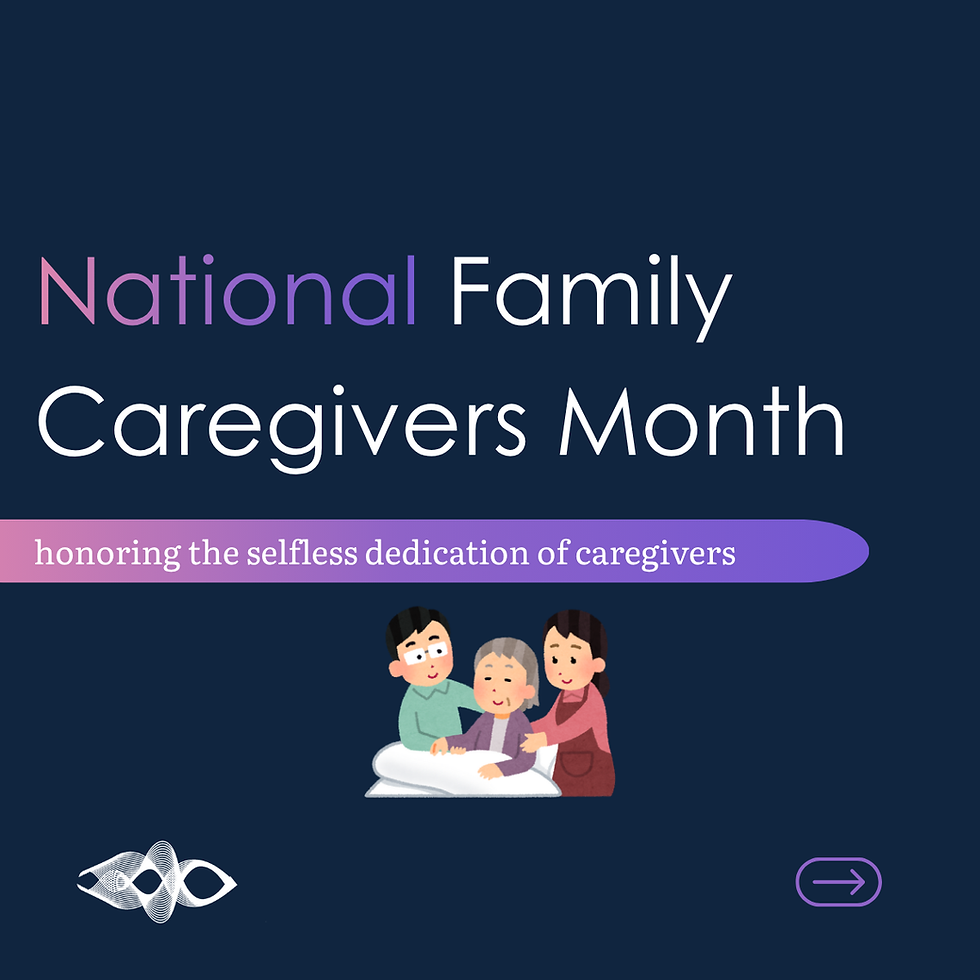How to Support Moms with Post-Partum Depression
- Michel Birnbaum
- May 13, 2022
- 3 min read
Updated: Jun 17, 2022
New moms might not know it, but post-partum depression is exceedingly common and can be treated.

Mother’s Day is a big holiday in many parts of the world. This is a day where people celebrate the women who gave birth to them, adopted them, raised them, and supported them through thick and thin and made life better. It is a day almost synonymous with happiness with big displays of flowers, chocolates, and gifts. But underneath the joyous veneer, is everything as cheerful as it seems?
Studies show that around one in seven women experience post-partum depression (PPD) after giving birth, experiencing symptoms like unexplained crying; irritability; insomnia; sadness; mood changes; and restlessness.
What’s more is that one in five women tend to stay silent about their symptoms when talking to their healthcare provider. Some women might feel scared to acknowledge that something just is not right: “It was hard to admit that I had any sort of issue because I thought that would somehow signal that I was imperfect,” writes one mother who went through PPD. Others might be worried about what others may think about them, given the stigma around not at once feeling “a joy like no other”.
People can experience PPD due to many reasons, including physiological ones such as experiencing hormonal changes and a significant drop in levels after pregnancy, or a history of previous depression, inadequate social support, or having a poor marital relationship.
Showing Love and Concern to New Moms
Whether you are a friend, parent, sibling, or a loved one to a mother with PPD, here are a few ways you can support them not only on Mother’s Day but every other day:
Create a safe space
You might not know what to say to a new mom who is experiencing PPD. By recognizing the signs, you might be the first one to help her better understand what she is going through. Create a safe space by being there physically and emotionally. See if you can find her a mother-centred support group, where she can talk honestly with other mothers.
Many of us might feel the need to jump in with our own anecdotes, offer solutions, or make her feel better without fully understanding what she is experiencing. Statements like “But you’re a great mom!” or “All moms feel tired” could make her feel invalidated. Though your intentions may be good, it is more important to help her get to a place where she can be safe, rather than comforting her with platitudes and niceties.
2. Be specific and consistent
We all want to help! But saying “Let me know how I can help” to a mother who is already struggling to understand their own needs can be counterproductive. Be direct and offer practical help, like bringing dinner over or babysitting for a few hours so that she can take a nap. A new mom experiencing PPD might also feel isolated from the rest of the world, so it is important to be consistent so that she knows she can rely on you. As she does this, she can focus on building her resilience – her ability to bounce back after going through adversities – and be better equipped mentally to cope with emotional pain she might face as a mother. The American Psychological Association explains that “increasing your resilience” is akin to “building a muscle” - the more one works on it, the stronger it gets.
3. Celebrate her
Some moms make it look easy but taking care of an infant is a challenging task. Celebrate the small milestones and help her see the positive aspects of motherhood. Though she might be doing an excellent job taking care of the little one, moms living with PPD can feel like they are the world’s worst moms. Remind her of how much the little baby enjoys her touch, her voice, her presence, and each small thing she does for them.
Use technology to help you and her to keep track of the symptoms she might be experiencing so that you can help cheer her on this difficult journey of motherhood. GenMind, for instance, helps mothers with PPD communicate with their healthcare provider efficiently so that progress can be captured more effectively at every visit.
We are reminded of a quote from Mother Teresa: “Not all of us can do great things. But we can do small things with great love”.
May all moms in the world celebrate each day like it’s Mother’s Day 😊
Follow and connect with us on LinkedIn to receive timely updates.
Can you tell us who you are?
Clinician
Investor
Potential User
I am what I am!



Comments